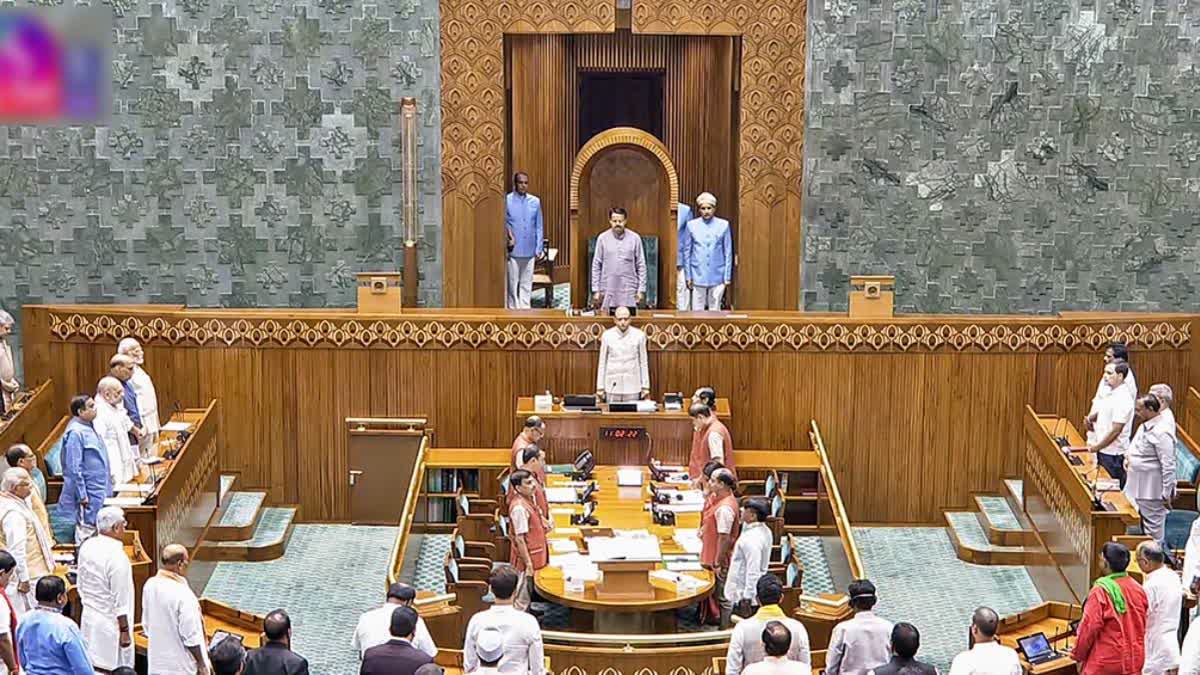New Delhi: After the Lok Sabha elections, the political temperature has risen regarding the election for the post of Lok Sabha Speaker. The election is being conducted under Article 93 of the Constitution. Those who know the intricacies of such elections said that the entire process takes more than an hour.
Former Secretary General of the Lok Sabha Secretariat, Parliament of India, P. D. Thankappan Achary, in an exclusive interview to ETV Bharat said that there will be voting on the Speaker's post due to lack of consensus on the position and the person who wins gets elected. Here's a step-by-step procedure leading to the elections:
Step 1- P. D. T. Achary said that traditionally, the Speaker is elected following a discussion between the government and the opposition. It has been a convention that the Speaker is elected by consensus as he oversees the entire house proceedings. Political parties generally prefer to avoid division over the speaker's post. However, contests have occurred in the past, and this year is no exception.
Step 2- If consensus cannot be reached despite discussions, the opposition may oppose the government's Speaker candidate and propose their own candidate. In such situations, an election takes place, he added.
Step 3- According to the former Secretary General of the Lok Sabha, a similar scenario is unfolding this time. There are two candidates, BJP's Om Birla and Congress's K Suresh, who have filed their nominations, and the election is scheduled for tomorrow. Notices of motion have been submitted on behalf of both the candidates. The pro-tem Speaker will review these motions, and these will need to be moved in the Lok Sabha tomorrow.
Step 4- The pro-tem Speaker will initiate the process by taking the first motion in the Lok Sabha. Once the motion is accepted, the voting process will commence. This process will involve issuing voting slips under the supervision of the Secretary General of the Lok Sabha. While a voice vote could suffice, given the opposition's candidate, voting by slips will be conducted.
Step 5- After voting and the counting of slips, the winners will be declared. The Speaker of the Lok Sabha is elected by a majority. Between Om Birla and K. Suresh, the Speaker will be the individual who receives more than half of the votes from the members present in the house.
Step 6- Following the selection, the new Speaker will be felicitated. P. D. T. Achary mentioned that traditionally, the leader of the government and the leader of the opposition accompany the newly elected Speaker to the chair. However, in the absence of a leader of the opposition, a senior leader from the opposition may fulfill this role.
He also emphasised that these elections are mandated by Article 93 of the Constitution. Ahead of the commencement of the session on June 24, President Droupadi Murmu had appointed BJP member B. Mahtab as Pro-tem Speaker to administer the oath to the newly elected Members of Parliament. Nominations for the Speaker's election have already been submitted, and the election is scheduled for June 26.
According to the Lok Sabha Secretariat, the first such contest occurred in 1952 between GV Mavalankar and Shankar Shantaram. Mavalankar won with 394 votes, while Shantaram received 55 votes. The second notable contest took place in 1976 between Baliram Bhagat and Jagannath Rao. Bhagat emerged victorious with 344 votes, compared to Jagannath Rao's 58 votes.
Read more
Cong Veteran, Eight-term MP, K Suresh Is Longest-Serving Parliamentarian In 18th Lok Sabha



